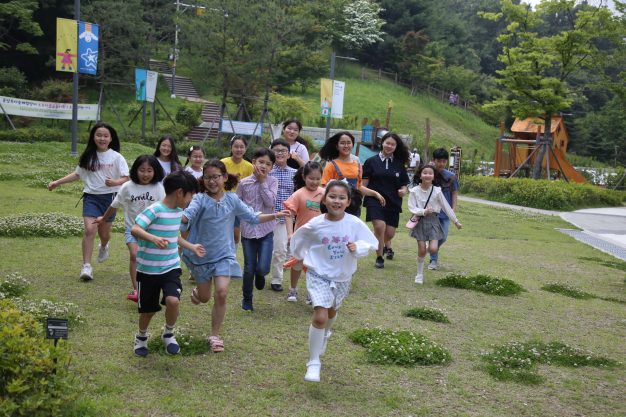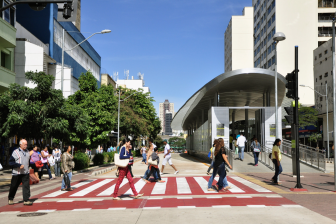
Korea city leaders mark 25 years of ‘continuous commitment for every child’
The efforts of Korean cities to promote child rights have been recognised in a high-level event held by the Korean Committee for UNICEF (KCU) with mayors and local government leaders.
It was organised with the Association for the Promotion of the UNICEF Child Friendly Cities (APUCFC), an association of mayors to promote child-friendly cities and child rights in Korea, to mark the 25th anniversary of the Child Friendly Cities Initiative (CFCI).
Despite the prolonged COVID-19 pandemic, around 100 mayors, local leaders and officials gathered in Hwaseong city and promised their continuous commitment to the vision of the CFCI – ‘Every child and young person enjoys their childhood and youth and reaches their full potential through equal realization of their rights within their cities and communities’ – and to accelerate progress towards improving the lives, opportunities and well-being of children. In addition, 10 cities shared their best practices to inspire local governments in the pipeline for CFCI recognition. The event was live streamed to reach as many local officers as possible.
Korea is among the countries where the CFCI has grown impressively in the past years. So far 54 Korean cities hold the CFCI recognition, reaching almost four million children. These cities have also invested more than $13 billion in 2021 in children’s rights and well-being. These efforts have given Korean children opportunities to be heard in decision-making processes, and all citizens and children are now more aware of children’s rights. Around 60 additional cities are planning to join this movement.
KeyCheol Lee, Executive Director of KCU, said: “As the leading representatives for child rights in Korea, I reflected on the ultimate objective of implementing the United Nations Convention on the Rights of the Child and proudly say that it is creating a child-friendly society.
“The CFCI is essential for this purpose because it changes the local governance and the relevant systems including legal structures, educational and medical institutions, and the private sector. In this context, KCU strives to urge local governments to join this child-friendly movement. I firmly believe that when the awareness of child rights is improved, many social issues affecting children are solved as well.”
‘We have to listen to the voices of the children’
Cheol-Mo Seo, Mayor of Hwaseong city and President of the APUCFC, said: “My vision as the president of APUCFC is based on the belief that we have to listen to the voice of the children. We respect their thoughts and perspectives and, to put it simply, are here to assist them. I think that promoting the CFCI is creating a nation where all citizens’ well-being and rights are fully respected. The place where the child rights are fully respected is the best place for everyone.”
UNICEF Executive Director Henrietta Fore sent her congratulatory message to Korean mayors, saying: “Although the initiative is led by UNICEF, it depends on the leadership of local governments who design and deliver the programmes and initiatives that bring it to life. This is certainly the case in Korea.”
The event was an opportunity to confirm mayors and local representatives’ commitment to child rights, and to strengthen the capacity of local officers by sharing good practices that cities in Korea have developed to improve the lives and well-being of young citizens. The collaboration between KCU and APUCFC has extended beyond Korea, most recently to Sri Lanka and the Democratic People’s Republic of Korea.
Following a request from UNICEF Sri Lanka, KCU and APUCFC arranged a knowledge-sharing session for local government officials and representatives in the city of Batticaloa in 2019, and KCU has financially supported the city’s efforts to become child friendly. This event and past cooperation are a testimony to the strength of this partnership between KCU and Korean cities, which will continue to deliver results for children for the next 25 years to come.




